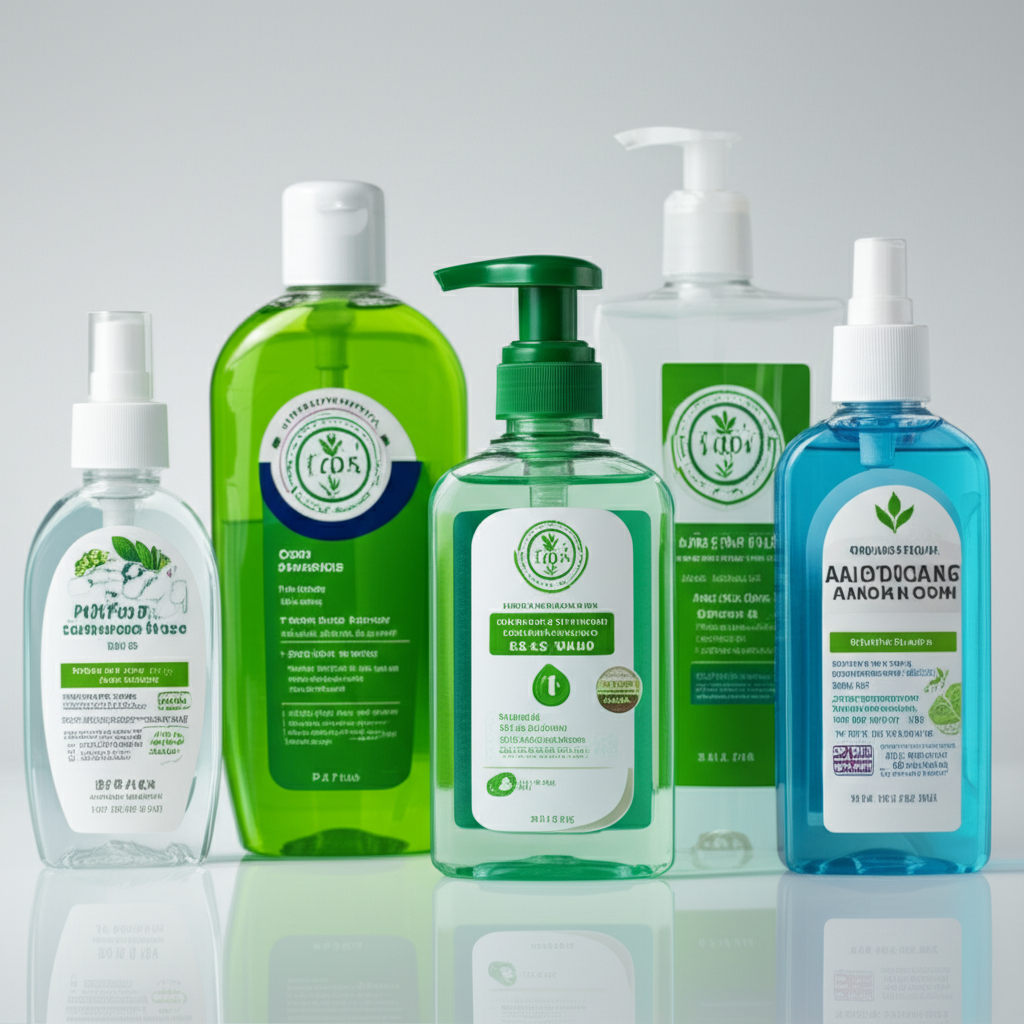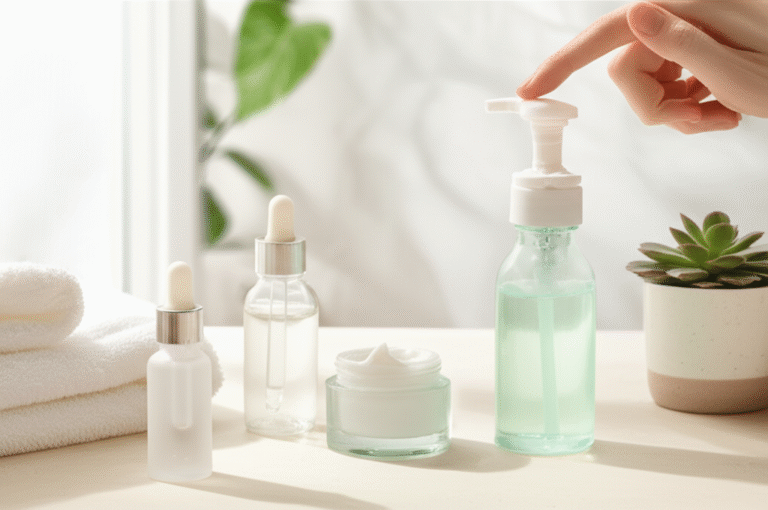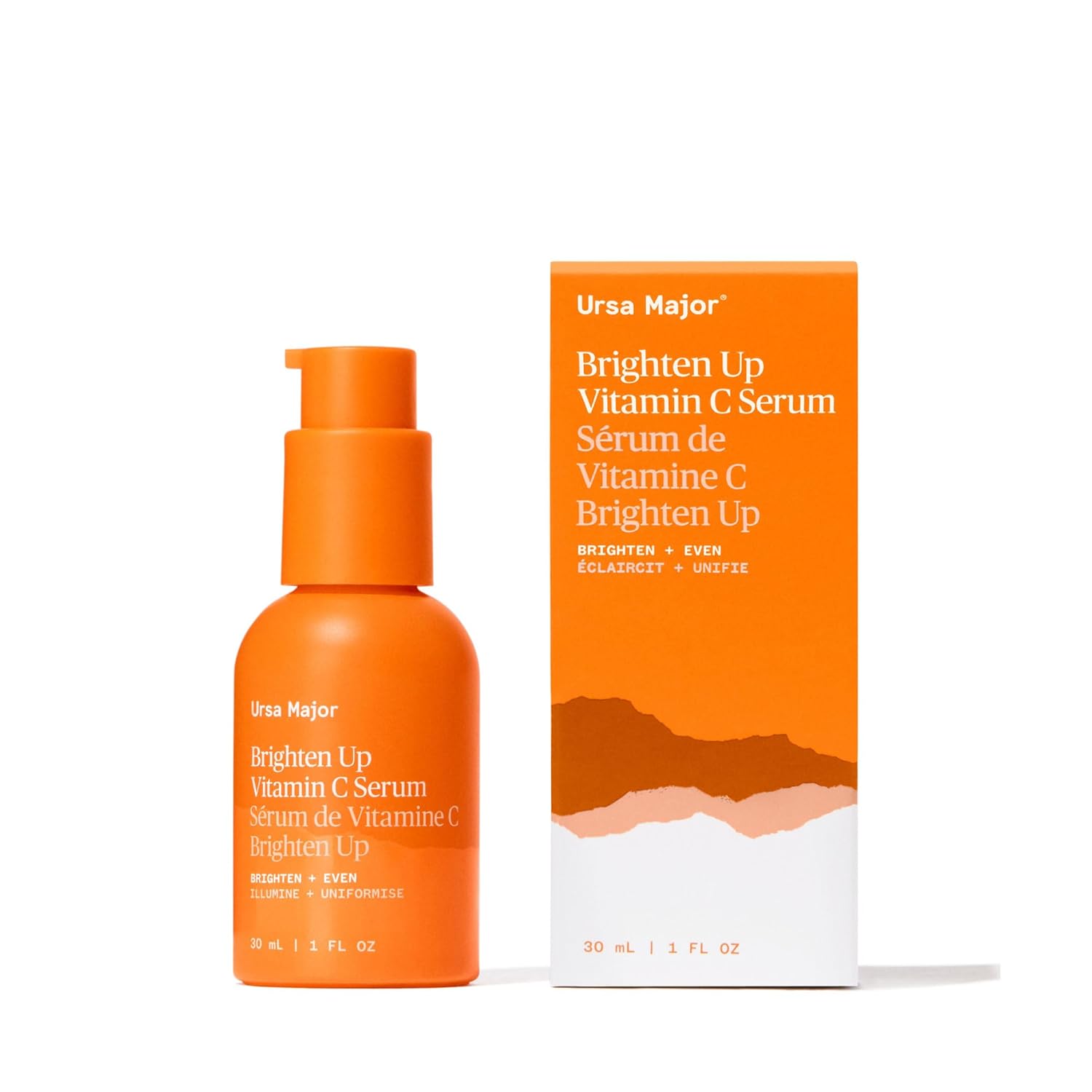Antibacterial skin care products are key to a clearer, healthier complexion by fighting acne-causing bacteria and preventing breakouts. They are essential for managing oily skin, reducing inflammation, and promoting a spotless, glowing look. Discover how to incorporate them effectively for your best skin ever.
Struggling with breakouts and unsure what your skin really needs? You’re not alone! Many of us face frustrating skin issues like acne, blemishes, and that unwelcome oily shine. It can feel overwhelming trying to navigate the world of skincare, especially when you’re just starting out. What if I told you a secret weapon could help? Antibacterial skin care products are powerful allies in your journey to clear, radiant skin. They’re designed to tackle the root causes of many common skin concerns. Ready to discover how these essentials can transform your complexion? Let’s dive in and make skincare simple and effective, one step at a time!
What Are Antibacterial Skin Care Products?

Think of antibacterial skin care products as your skin’s tiny defenders! They contain ingredients specifically chosen to combat bacteria that can lead to common skin problems like acne. When bacteria, particularly a type called Cutibacterium acnes (formerly Propionibacterium acnes), multiply on your skin, they can clog pores, cause inflammation, and result in those pesky pimples and blackheads. Antibacterial ingredients work by either killing these harmful bacteria or preventing them from growing.
These products are more than just a quick fix; they are essential tools for maintaining skin health, especially for those prone to oily or acne-prone skin. By actively reducing the bacteria that contribute to breakouts, they help to clear existing blemishes and prevent new ones from forming. This proactive approach can lead to a smoother, clearer, and more confident complexion. Integrating them thoughtfully into your routine can make a significant difference, paving the way for that healthy glow you’re aiming for.
Why Are Antibacterial Skin Care Products Essential?
Antibacterial skin care products are a cornerstone of achieving and maintaining healthy skin, particularly for individuals dealing with common concerns. Their essential role stems from their ability to directly target and mitigate the factors that lead to many persistent skin issues. Let’s break down why they are so crucial:
- Fighting Acne Breakouts: The primary culprit behind many types of acne is the overgrowth of bacteria, especially Cutibacterium acnes. These bacteria feed on excess oil (sebum) and dead skin cells in clogged pores, triggering inflammation and leading to pimples. Antibacterial products help to significantly reduce the bacterial load on the skin, thereby preventing and treating acne.
- Controlling Oiliness: While not all oily skin is directly caused by bacteria, excess sebum can create a favorable environment for bacterial growth. By managing bacteria, some antibacterial ingredients can have a secondary effect on balancing sebum production or preventing the breakdown of sebum into inflammatory byproducts, leading to less greasy skin.
- Reducing Inflammation: Bacterial activity is a major driver of inflammation in acne lesions. Antibacterial agents help to quell this inflammation, reducing the redness, swelling, and discomfort associated with pimples. This not only helps blemishes heal faster but also minimizes the risk of post-inflammatory hyperpigmentation (dark spots) and scarring.
- Preventing Future Blemishes: Regular use of appropriate antibacterial products acts as a preventative measure. By keeping the bacterial population on your skin in check, you reduce the likelihood of pores becoming clogged and inflamed, leading to fewer breakouts over time.
- Improving Skin Texture and Tone: When skin is consistently battling bacteria and inflammation, its overall texture and tone can suffer. By creating a cleaner, calmer environment, antibacterial care can contribute to smoother skin texture and a more even, radiant complexion.
- Promoting Wound Healing: For existing blemishes, antibacterial ingredients can help keep the area clean, reducing the risk of secondary infection and supporting the natural healing process. This means clearer skin with less chance of lingering marks.
It’s important to remember that while beneficial, these products should be chosen wisely and used as part of a balanced skincare routine. Overuse or using overly harsh antibacterial ingredients can sometimes strip the skin’s natural barrier. Understanding your skin type and concerns will guide you to the most effective antibacterial solutions.
Key Antibacterial Ingredients to Look For
When you’re shopping for antibacterial skin care products, keeping an eye out for specific ingredients can make all the difference. These powerful compounds are the workhorses that help combat acne-causing bacteria and keep your skin clear. Here are some of the most common and effective ones:
| Ingredient | How It Works | Best For | Common Products |
|---|---|---|---|
| Benzoyl Peroxide | Kills C. acnes bacteria by releasing oxygen into the pores, which the bacteria cannot survive in. It also helps to unclog pores by exfoliating dead skin cells. | Moderate to severe acne, inflammatory pimples, blackheads, whiteheads. Available in spot treatments, washes, and creams. | Acne washes, spot treatments, creams. (e.g., products with 2.5%, 5%, or 10% concentrations). |
| Salicylic Acid (BHA) | A beta-hydroxy acid that is oil-soluble. It penetrates deep into pores to dissolve sebum and dead skin cells, preventing clogs. It also has mild anti-inflammatory and antibacterial properties. | Blackheads, whiteheads, oily skin, mild acne, pore congestion. | Cleansers, toners, serums, acne patches. |
| Tea Tree Oil | A natural essential oil with potent antimicrobial and anti-inflammatory properties. It effectively fights acne-causing bacteria without being overly harsh. | Mild to moderate acne, sensitive skin types that react to harsher chemicals, redness. | Spot treatments, cleansers, masks, toners. Often found in diluted forms. |
| Sulfur | Helps to dry out the surface of the skin and unclog pores by exfoliating dead skin cells. It also has mild antibacterial properties and can help reduce oiliness. | Oily skin, mild acne, blackheads, whiteheads, and can be helpful for rosacea and seborrheic dermatitis. | Acne treatments, masks, soaps, spot treatments. |
| Azelaic Acid | Works by killing bacteria, reducing inflammation, and unclogging pores. It also helps to fade post-acne marks. | Acne, rosacea, hyperpigmentation, uneven skin tone. Suitable for sensitive skin. | Serums, creams, topical treatments. |
| Niacinamide (Vitamin B3) | While not strictly antibacterial, it helps regulate sebum production, reduces inflammation, and strengthens the skin barrier, which can indirectly help manage acne. It also helps improve skin tone. | Oily and acne-prone skin, enlarged pores, redness, post-acne marks, overall skin barrier health. | Serums, moisturizers, toners. |
When choosing an ingredient, consider your skin’s sensitivity. Benzoyl peroxide can be drying and cause bleaching of fabrics, so start with lower concentrations. Salicylic acid is excellent for unclogging pores. Tea tree oil is a great natural option, but always ensure it’s properly diluted. Sulfur is effective for oil control. Azelaic acid offers a multi-tasking benefit for inflammation and dark spots. Niacinamide is a gentler, more supportive ingredient for overall skin health.
How to Choose the Right Antibacterial Skin Care Products
Navigating the world of antibacterial skincare can feel like a maze, but finding the right products for your skin is totally achievable! It’s not a one-size-fits-all situation, so understanding what your skin needs is the first step. Here’s a simple guide to help you make the best choices:
1. Know Your Skin Type
This is the golden rule of skincare! Are you oily, dry, sensitive, or combination? Or perhaps your skin is prone to acne?
- Oily/Acne-Prone Skin: You’ll likely benefit from ingredients like Salicylic Acid, Benzoyl Peroxide (in moderate concentrations), Niacinamide, and Sulfur. These help control oil and target bacteria.
- Sensitive Skin with Acne: Look for gentler antibacterial options like Azelaic Acid, diluted Tea Tree Oil, or formulations with lower percentages of Benzoyl Peroxide. Consider products specifically labeled for sensitive or acne-prone sensitive skin.
- Dry Skin with Acne: While antibacterial products are often associated with oiliness, dry skin can still experience breakouts. Opt for antibacterial ingredients in hydrating formulations, like serums or spot treatments, to avoid further drying. Salicylic Acid can be effective here, as can gentle BPO formulations.
- Combination Skin: You might need to tailor your approach. Use products with antibacterial agents on breakout-prone areas (like the T-zone) and gentler, hydrating products elsewhere.
2. Consider Your Skin Concerns
Beyond just “acne,” what else is bothering you?
- For Blackheads and Whiteheads: Salicylic Acid is your best friend. It’s oil-soluble, meaning it can penetrate into pores and dissolve the blockages.
- For Inflammatory Pimples (Red, Swollen Bumps): Benzoyl Peroxide and Azelaic Acid are excellent for reducing inflammation and killing bacteria.
- For Redness and Sensitivity: Niacinamide and Azelaic Acid can help calm irritation while addressing acne.
- For Oily Shine: Sulfur and Niacinamide can help regulate oil production.
3. Start Low and Go Slow
Especially with potent ingredients like Benzoyl Peroxide, it’s wise to start with the lowest effective concentration. For Benzoyl Peroxide, this might be 2.5% or 5%. For Salicylic Acid, look for 1-2% in cleansers or toners, and perhaps higher in spot treatments.
4. Patch Test New Products
Before slathering a new product all over your face, apply a small amount to an inconspicuous area (like behind your ear or on your jawline) for a few days. This helps you check for any adverse reactions like redness, itching, or irritation.
5. Read Reviews and Ingredient Lists
See what others with similar skin types say about a product. Also, familiarize yourself with the ingredient list. If you see a lot of ingredients that often trigger your skin (like certain fragrances or alcohols), it might be best to steer clear.
6. Look for Complementary Ingredients
Many effective antibacterial products also contain soothing ingredients like hyaluronic acid, ceramides, or centella asiatica (cica) to combat the potential dryness or irritation that can come with acne treatments. These help keep your skin’s moisture barrier intact.
Choosing the right product is an ongoing process of learning what works best for your unique skin. Don’t be afraid to experiment (carefully!) and give your skin time to adjust to new treatments.
How to Incorporate Antibacterial Products into Your Routine
Adding antibacterial skin care products to your regimen is a smart move toward clearer, healthier skin. But how you use them matters! The goal is to be effective without causing irritation. Here’s a simple, step-by-step approach:
Step 1: Identify Your Entry Point
Where will your antibacterial product fit best? Common options include:
- Cleanser
- Toner
- Spot Treatment
- Serum
- Moisturizer
- Mask
For beginners, starting with a gentle antibacterial cleanser or a spot treatment is usually the safest bet. This allows you to target bacteria without overwhelming your entire face.
Step 2: Introduce Gradually
Don’t jump into using harsh antibacterial products every day, twice a day, right away. This can shock your skin and lead to dryness, redness, and irritation. Instead:
- Start 2-3 times a week: Begin by using your chosen antibacterial product every other day, or even just 2-3 times a week.
- Assess the reaction: Pay close attention to how your skin responds. If it feels comfortable, you can gradually increase the frequency.
- If irritation occurs: If you notice dryness, redness, or peeling, scale back. Use it less often, switch to a lower concentration, or try a gentler formulation.
For example, if you’re using an antibacterial cleanser with Benzoyl Peroxide, you might use it only in the evening 3 times a week initially. If your skin tolerates it well, you can gradually increase to every other evening, and then potentially every evening if needed.
Step 3: Layering Wisely
The order of your skincare matters!
- Cleanser: Use first, then rinse thoroughly.
- Toner: Apply after cleansing if you’re using an antibacterial toner.
- Serum: If you have an antibacterial serum, apply it after toner and before heavier creams.
- Spot Treatment: Apply this directly onto active breakouts after serums but before moisturizer. This ensures the active ingredients have direct contact with the blemish.
- Moisturizer: Always follow with a moisturizer. This is CRUCIAL, especially when using drying antibacterial ingredients. It helps to rehydrate your skin and support its natural barrier. Choose a lightweight, non-comedogenic (won’t clog pores) moisturizer.
- Sunscreen (AM): If you’re using active ingredients like Benzoyl Peroxide or Salicylic Acid, your skin will be more sensitive to the sun. Always finish your morning routine with a broad-spectrum SPF of 30 or higher. This is non-negotiable!
Step 4: Be Consistent and Patient
Skincare is a marathon, not a sprint. It can take 4-8 weeks to see significant improvements from new products. Stick with a consistent routine, and try not to get discouraged if you don’t see overnight results. Your skin needs time to adapt and heal.
By following these steps, you can effectively integrate antibacterial products into your routine, maximizing their benefits while minimizing potential side effects. The key is to start slow, listen to your skin, and always protect it with sunscreen.
Are All Antibacterial Products Safe for Daily Use?
This is a fantastic question and a crucial point for anyone starting with antibacterial skincare! The short answer is: it depends on the product, the active ingredient, its concentration, and your individual skin type. Not all antibacterial products are designed or suitable for daily, twice-a-day application right out of the gate.
Here’s a breakdown:
- Potent Ingredients like Benzoyl Peroxide: While highly effective, Benzoyl Peroxide can be drying and irritating. Many dermatologists recommend starting with lower concentrations (2.5% or 5%) and using them only a few times a week, gradually increasing frequency as tolerated. Some people can use it daily, but it often requires careful monitoring and a robust moisturizing routine.
- Salicylic Acid (BHA): Generally, leave-on products with 1-2% Salicylic Acid (like toners or serums) are formulated for daily use, though some sensitive individuals might experience dryness. Cleansers with SA can often be used daily as they are rinsed off quickly. However, if you’re using multiple SA products or a higher concentration, you might need to alternate days.
- Gentler Options like Niacinamide or Diluted Tea Tree Oil: These are often well-tolerated for daily use. Niacinamide is excellent for fortifying the skin barrier, and diluted tea tree oil can be used in spot treatments or diluted in toners without causing excessive dryness for most.
- Sulfur: Sulfur products can sometimes be drying. Depending on the product type (wash, spot treatment), it might be used daily or a few times a week. Pay attention to your skin’s “feel.”
- Azelaic Acid: Often available in prescription strengths or lower over-the-counter percentages (like 10%), Azelaic Acid is frequently recommended for daily use by dermatologists due to its anti-inflammatory and antibacterial properties. It’s generally well-tolerated.
Key Considerations for Daily Use:
- Concentration: Higher concentrations are more likely to cause irritation and may not be suitable for daily use, especially initially.
Frequently Asked Questions About Antibacterial Skincare
Q1: Are antibacterial skincare products safe for everyday use?
It depends on the ingredient and your skin type. Gentler options like niacinamide or azelaic acid are often fine for daily use, while stronger ingredients like benzoyl peroxide or sulfur may be best a few times a week. Always start slow and adjust based on your skin’s response.
Q2: Can antibacterial skincare help with oily skin?
Yes. Many antibacterial ingredients also help regulate sebum production, keeping oiliness under control and reducing the likelihood of clogged pores.
Q3: Do antibacterial products work for sensitive skin?
Some do! Azelaic acid, niacinamide, and diluted tea tree oil are good options for sensitive or reactive skin. Always patch test before applying new products to your whole face.
Q4: How long does it take to see results?
You may notice calmer, less inflamed skin in 1–2 weeks, but clearer and smoother skin typically takes 4–8 weeks of consistent use. Patience and consistency are key.
Q5: Do I still need sunscreen if I use antibacterial products?
Absolutely! Many antibacterial ingredients (like salicylic acid or benzoyl peroxide) make skin more sensitive to UV rays. Daily sunscreen is essential to protect your progress and prevent dark spots.
Conclusion: Clear, Confident Skin Starts Here
Antibacterial skincare products are more than just treatments — they’re powerful allies in your journey to healthier, clearer, and more radiant skin. By targeting acne-causing bacteria, reducing oiliness, and calming inflammation, they address the root causes of breakouts rather than just masking them.
The key is balance: choose the right antibacterial ingredients for your skin type, introduce them gradually, and always pair them with hydration and sun protection. With consistency and care, these products can transform not only your complexion but also your confidence.
Clear skin isn’t about perfection it’s about progress. With antibacterial skincare in your routine, you’re one step closer to the smooth, glowing skin you deserve.



